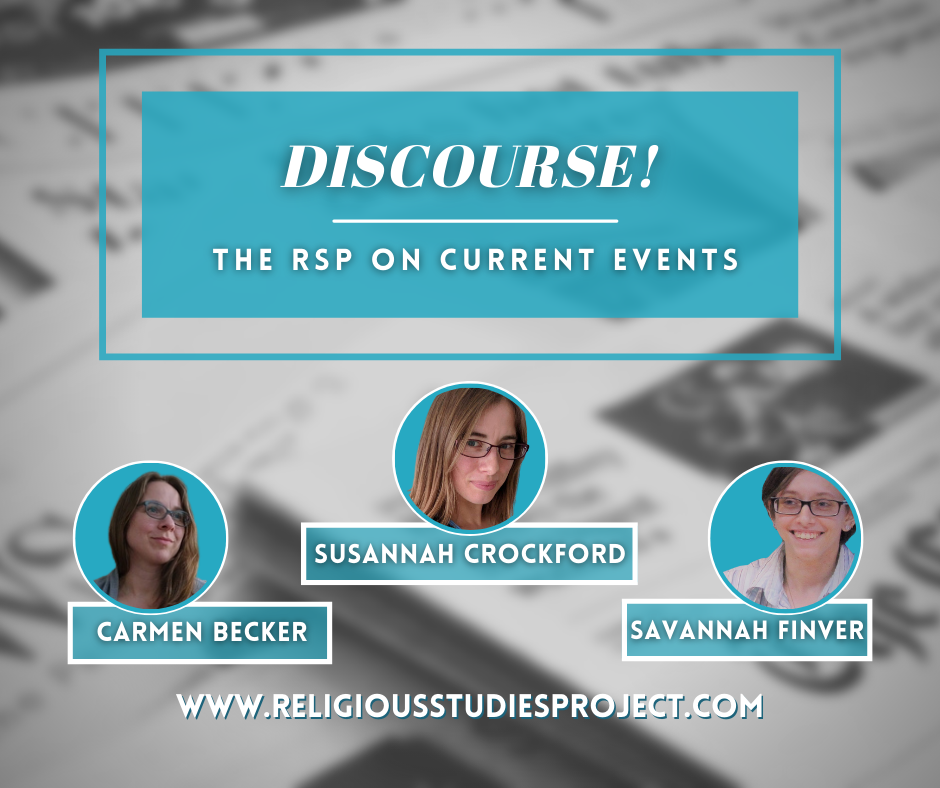Whose beliefs get to count and in what contexts? Join Carmen Becker, Susannah Crockford, and Savannah Finver in this month’s episode of Discourse! for their discussion about the leaked US Supreme Court decision in Dobbs v. Jackson which may overturn Roe v. Wade, the UK’s response to particular kinds of “disruptive” climate protests, and international coverage of the ongoing conflict between Russia and Ukraine. Which beliefs are rendered sayable or unsayable? What kinds of comparisons between views are we allowed to make? Tune in to find out!






